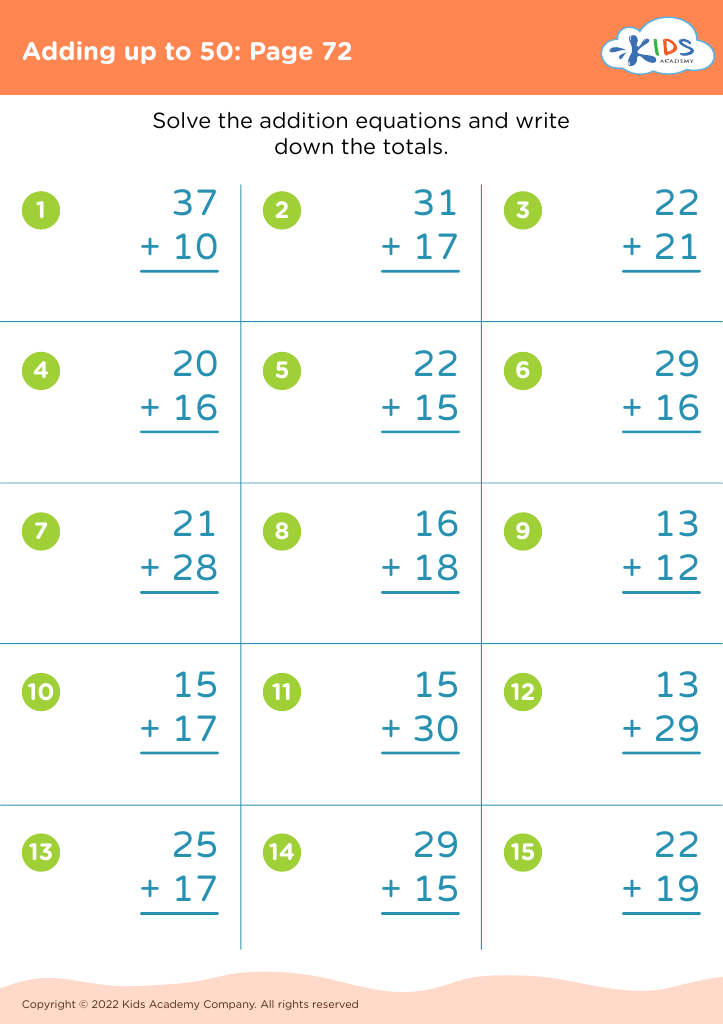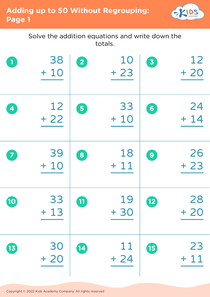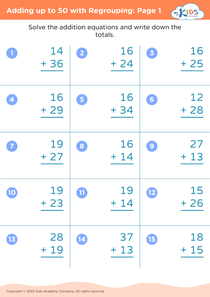Understanding multiplication Adding up to 50 Misc Worksheets for Ages 7-9
3 filtered results
-
From - To
Explore our collection of "Understanding Multiplication Adding up to 50 Misc Worksheets" tailored for ages 7-9. These engaging worksheets, available on Kids Academy, offer young learners fun and practical exercises to reinforce their math skills. Focusing on building a strong foundation in multiplication and addition, each worksheet is designed to simplify complex concepts through interactive tasks. Encourage your child to practice regularly and watch as they gain confidence and proficiency in math. Perfect for home or classroom use, our worksheets contribute greatly to young students' academic development. Give your child the tools they need to succeed today!
Understanding multiplication and addition up to 50 is pivotal for children aged 7-9 as these fundamental skills are the building blocks for more advanced mathematical concepts. At this age, students transition from simple arithmetic to more complex problem-solving. Mastery in these areas promotes confidence and fluency in math, laying a solid foundation for their future academic endeavors.
Multiplication introduces the concept of grouping and repeated addition, which helps develop logical reasoning and enhances number sense. It enables children to grasp more efficiently arithmetic principles that are crucial for everyday calculations and advanced mathematics, such as division and fractions.
Similarly, addition up to 50 nurtures mental math skills and quick estimation abilities. This is essential not just for academic progress but for real-life tasks like making quick calculations in shopping, cooking, or budgeting.
Moreover, proficiency in these skills supports overall cognitive development. It encourages strategic thinking, problem-solving, and perseverance. Early mastery can prevent future frustration and anxiety related to math, promoting a positive attitude towards learning.
For these reasons, parents and teachers must prioritize these math skills, providing engaging activities, supportive environments, and encouraging frequent practice. By doing so, they help children build confidence, proficiency, and a solid mathematical foundation.


















